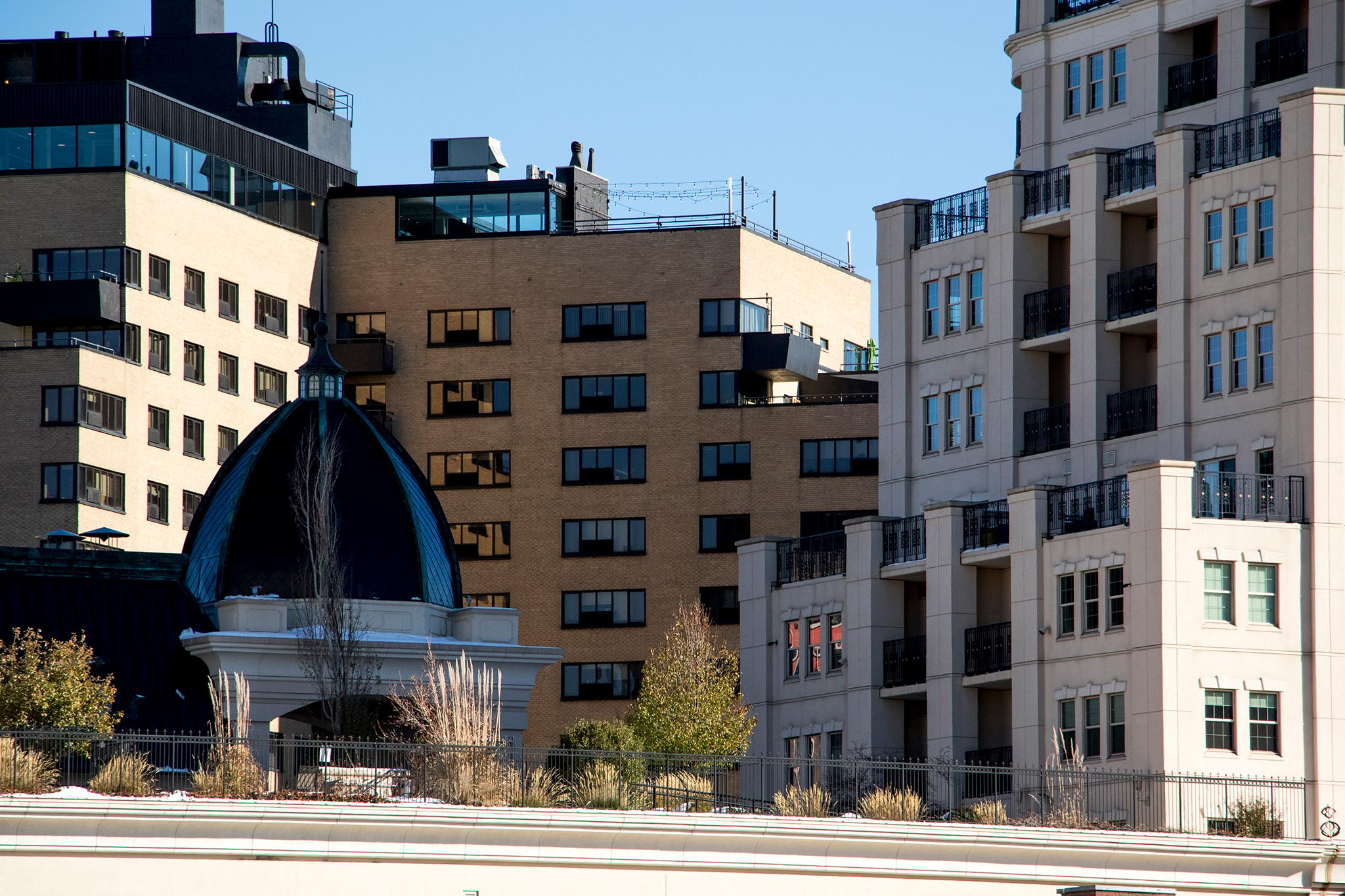When Mary Putman began deploying employment as a tool to end homelessness in metro Denver, helping someone get and keep a job usually led to housing.
That was almost a decade ago. In more recent years, a place to live has remained out of reach for people experiencing homelessness who have undergone training and found work through Putman's Reciprocity Collective, she said. These days, Putman ends up pointing some people to rec centers where they can grab a shower before heading to work after a night in their cars. Others couch surf. Putman even occasionally arranged an Airbnb room.
"That's how the gaps are being filled: very creatively," Putman said.
Thursday, the National Low Income Housing Coalition released its latest annual report on the challenge low-income renters face, "The Gap: A Shortage of Affordable Homes." Nationally, the coalition found just 37 affordable and available rental homes for every 100 families who were either below the poverty level or earning less than 30 percent of the area median income. The situation was even more dire in metro Denver, where just 26 homes were available for every 100 of the 80,368 poorest households, up from 25 last year.
The coalition uses a common computation to determine affordability: rent should not take up more than 30 percent of a household's income. The coalition also looked at how many units were actually available -- not rented to higher-earning households -- to the poorest households.
At the other end of the spectrum in the Denver area, people earning 100 percent of the area median income had a surplus of units. The National Low Income Housing Coalition determined 103 units were affordable and available for every 100 households earning 100 percent of AMI.
"So many of our folks don't even hit 30 percent of AMI," Putman said of people who come to The Reciprocity Collective because they want to work and change their lives. "Most of the developments they call affordable are not."
Putman, who lives in Five Points, has seen the boom in luxury apartment towers in the Denver area. The increase in supply is bringing down rents, but only slightly. At the start of this year, the Apartment Association of Metro Denver said rents had dropped less than 2 percent over the previous six months. Vacancy rates, meanwhile, are rising, to 5.8 percent the last quarter of 2018 from 5.5 percent the previous quarter. According to the apartment association's Denver Metro Area Apartment Vacancy and Rent survey, the region started the year with more than 20,000 vacant apartments.
Denver's just become completely unaffordable for too many people," said Cathy Alderman, vice president of communications and public policy for the Colorado Coalition for the Homeless. As a result, "we're seeing an increase in homelessness, particularly family homelessness."
Alderman noted that according to the latest results of the annual point-in-time survey, some 11,000 people across the state experience homelessness on a typical night.
The Denver area's vacant apartments "could literally house the entire population of homelessness in the state,"Alderman said.
She called for creative thinking. Perhaps landlords could be persuaded to make some of their vacant apartments available to an organization like hers to house people experiencing homelessness for a few months while longer-term solutions are found.
The city's pilot, Lower Income Voucher Equity Program, or LIVE Denver, seeks to provide subsidies to 125 families earning between 40 and 80 percent of the area median income to get them into market-rate apartments. The first three families to benefit from LIVE Denver were able to move into apartments earlier this year.
"It can't be just us. It can't be just the city," Alderman said. "It has to be the community coming together. It also has to be the community coming together and saying it's not acceptable that we have these luxury apartments and that they're sitting empty while people are forced to sleep outside and dying outside."
Alderman said some type of intervention is necessary because developers who have high building and operating costs can't rely only on the rents that low-income tenants can afford. Diane Yentel, the National Low Income Housing Coalition's president and CEO, called in a statement for action at the national level, saying Congress must protect and expand public housing and programs such as rent vouchers.
Max Reedy, digital marketing manager for Affordable Housing Online, said the Trump administration has consistently tried to cut government housing help for low-income Americans, but that Congress has pushed back. Affordable Housing Online researchers reviewed the administration's budget unveiled this week and found proposed cuts in, for instance, vouchers and funds to maintain public housing.
Reedy has seen the challenge that low-income families face. His digital service links house-seekers to public housing websites and other sources of housing information.
"Some people (living in homelessness) have contacted us and say, 'I'm on a library computer and this is the one hour I have before I have to get off," Reedy said.
"We want to make sure that everyone gets the best opportunity to find housing so that they can avoid being on the streets or in a shelter," he said. "We're finding its getting harder and harder to find affordable housing."
More leadership is needed, said Putman, who runs the employment project.
"We can't see any consistent investment to have housing for folks at all levels of employment," she said. "It just never feels like the folks in power are really working creatively toward solutions."
In the meantime, Putnam tries to stay positive. She has a background in the hospitality industry and once managed a pizza restaurant that the Colorado Coalition for the Homeless opened and that hired people who'd recently been homeless.
"We can get people work. We coach them. We see them every week," Putman said. "But it's discouraging. We still have a few fall by the wayside because they're not housed. That has so much stress and trauma to it, it's really challenging to keep them employed."












